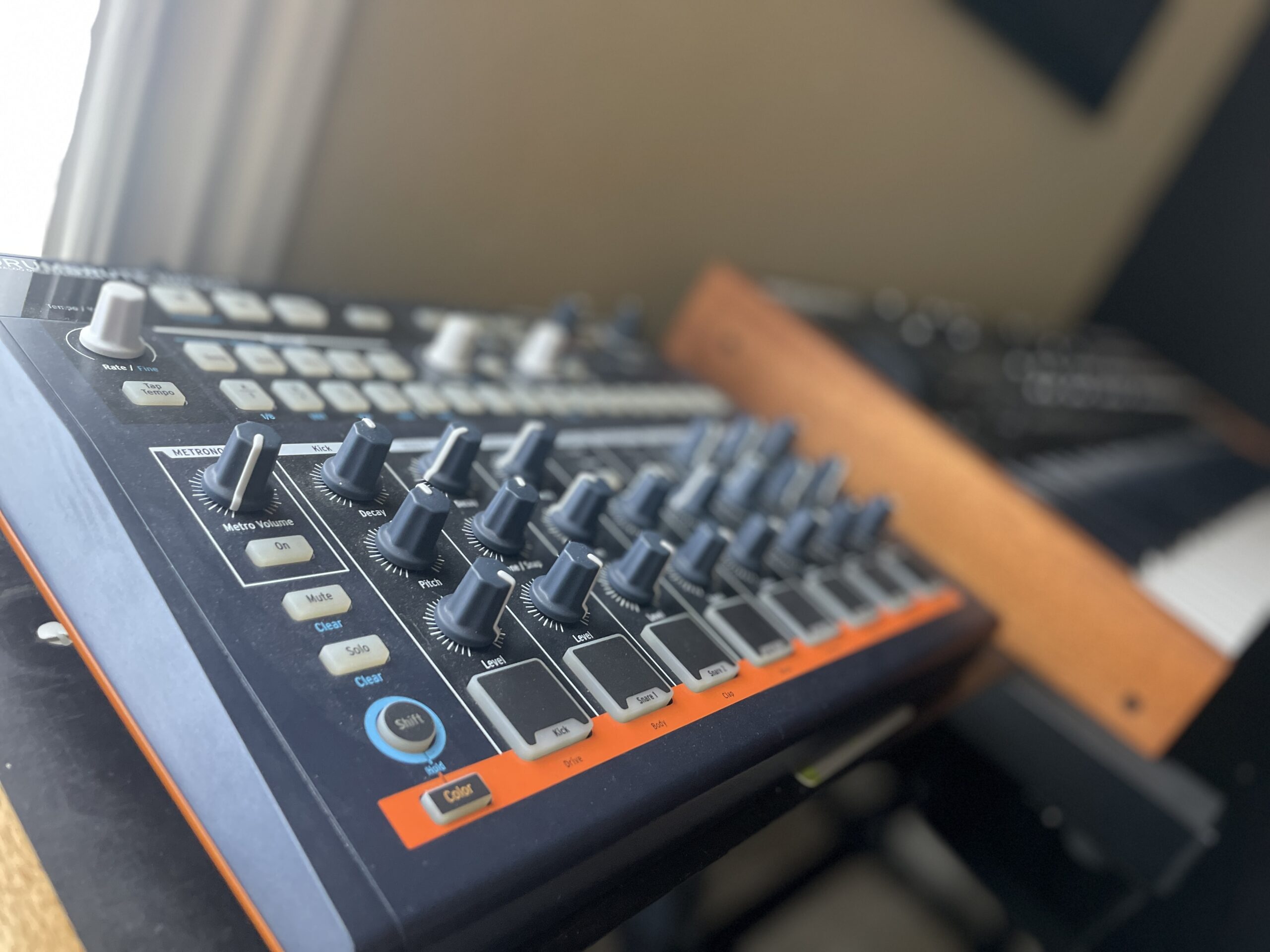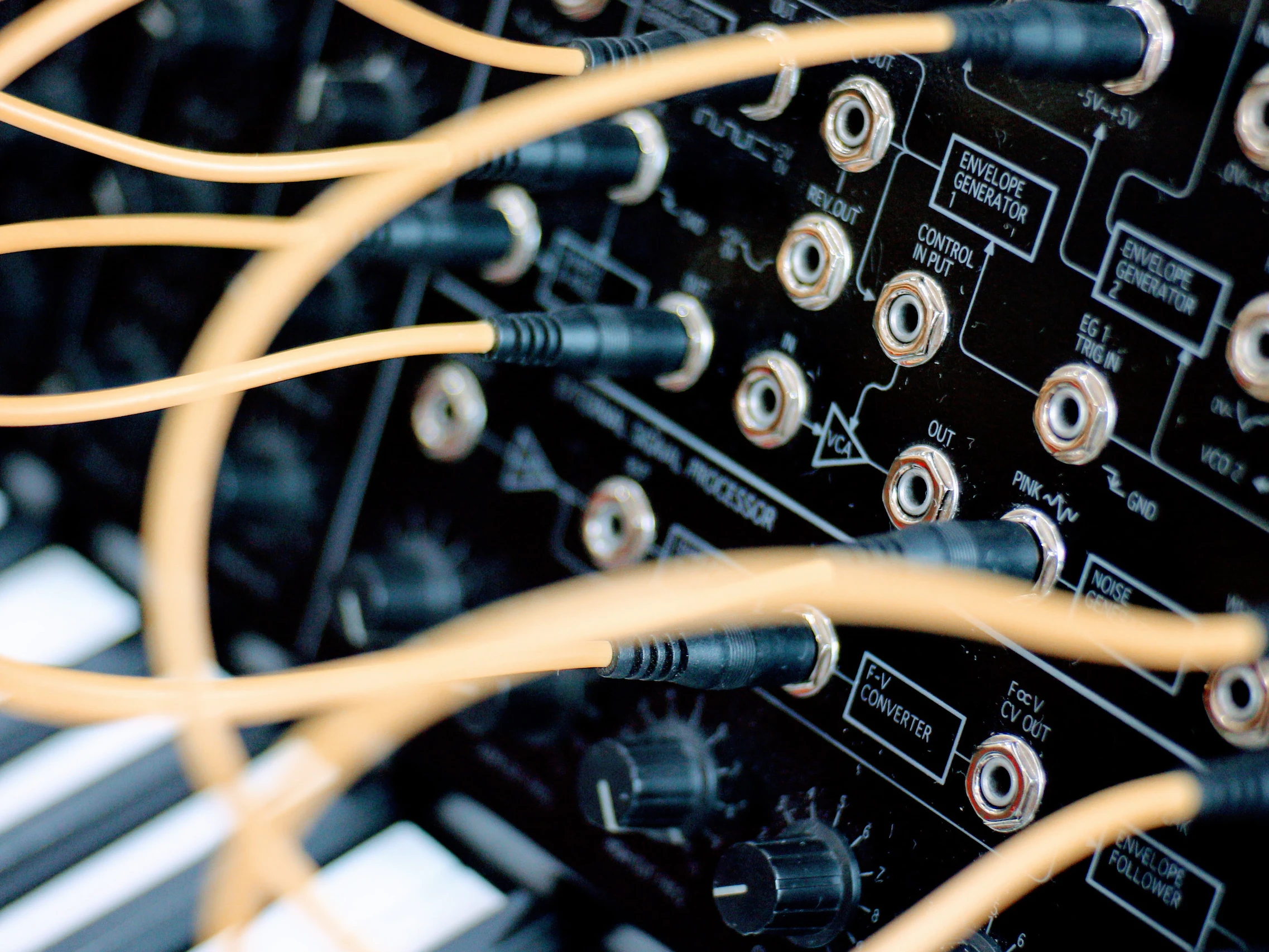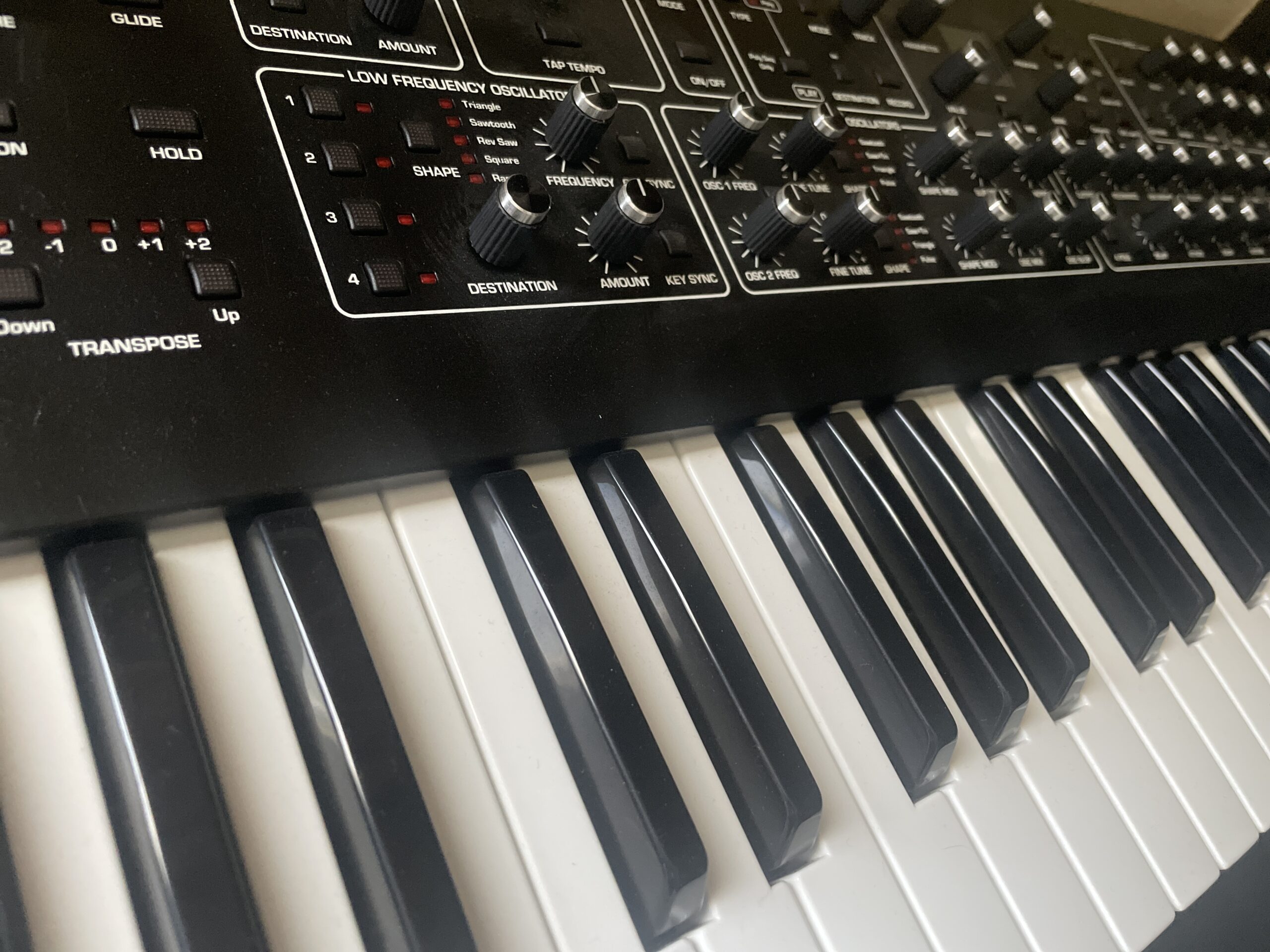I’ve always been an analog nut. Although I’ve owned my fair share of digital synths, it’s undeniable that there’s something about a fully analog synthesizer that’s just incredibly unbeatable.
I’ve also owned my fair share of polyphonic synths, but there’s also something that’s undeniably cool about a great monophonic.
In terms of killer fat bass lines, well, that’s where the Monologue just shines. My “main synth” is a Sequential Prophet Rev-2, which is a fantastic analog all around, but if you give me the task to create a fat, squelchy, funky bass…I’ll actually default towards the Monologue.
About the Monologue
The Korg Monologue is a compact, monophonic analog synthesizer that offers a powerful sound and intuitive interface. As a sort of monophonic sequel to the popular Korg Minilogue, the Monologue builds on the Minilogue’s success while simplifying.
Starting with the design: Korg is flashing back to vintage, and the wood back panel doesn’t look half bad. The Monologue has a sleek, modern look with a slim, lightweight build that makes it easy to transport. The synth features a 25-key keyboard that is both velocity-sensitive and responsive to aftertouch. The keys are not quite full-sized, but they have a nice feel to them. You’re not going to do any crazy multi-note chord-filled solos on these, but then again, this is a monophonic synth. The control panel is laid out in a clear and straightforward manner with great knobs (the resistance feels really nice and it’s easy to adjust at a granular level) and this makes it easy to navigate and tweak the synth’s parameters.
In terms of sound, the Monologue packs a punch. It features a single VCO (voltage-controlled oscillator) that can produce a wide range of waveforms, from classic sawtooth and square waves to more complex waveshapes. The oscillator can also be tuned to different octaves. The Monologue also features a powerful filter section that can shape the sound in a variety of ways. There is also an envelope generator that can be used to shape the filter and amplitude of the sound.
Although it’s a good sounding synth in general, it really shines in lower, grittier bass sounds.
One of the most exciting features of the Monologue is its 16-step sequencer. The sequencer is easy to use and can be programmed in real-time or step-by-step. It can be used to sequence notes, rests, and parameter changes, and can also be used to trigger the synth’s arpeggiator.
Another standout feature of the Monologue is its microtuning capabilities. This allows for precise control over the tuning and temperament of the synth, making it a valuable tool for those working in alternative tuning systems or microtonal music. For those who want a slightly-whining reedy vintage sound – this is your place.
In terms of connectivity, the Monologue has a variety of inputs and outputs. It has a MIDI input and output, as well as a USB port that can be used for MIDI over USB. There is also a CV sync input and output, allowing the Monologue to be synchronized with other analog gear. There is also an audio input that can be used to process external audio through the synth’s filter and effects.
Overall, the Korg Monologue is an excellent synthesizer that offers a lot of power and flexibility in a compact and intuitive package. The sound is rich and full, and the sequencer and microtuning capabilities add a lot of depth and versatility to the synth. The design is modern and attractive, and the control panel is easy to navigate and use. The price point is also quite reasonable, making the Monologue an accessible option for those looking for a high-quality analog synth.
However, it is worth noting that the Monologue does have some limitations. As a monophonic synth, it can only play one note at a time, which may be limiting for those who need polyphony. Additionally, while the sequencer is powerful, it is limited to 16 steps, which may be too short for some users.
Things I don’t like about the Monologue
It doesn’t have a super wide sound palette. It’s not great for leads or pads. Just doesn’t sound super great – the filter is a little grainy at higher notes.
The sequencer, although almost unheard of at a synth of this price level, is a little menu-divey and isn’t super easy to use in any complex manner.
Things I love about the Monologue
The bass tone on the lower end of the spectrum is just great…especially if you want squelchy, funky bass lines.
The filter flow is very intuitive and it’s not terribly menu-divey until you get to the sequencer stuff.
The little waveform screen is awesome, it makes sound design lots of fun.



